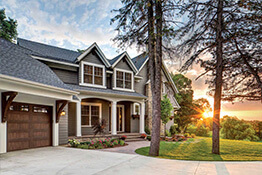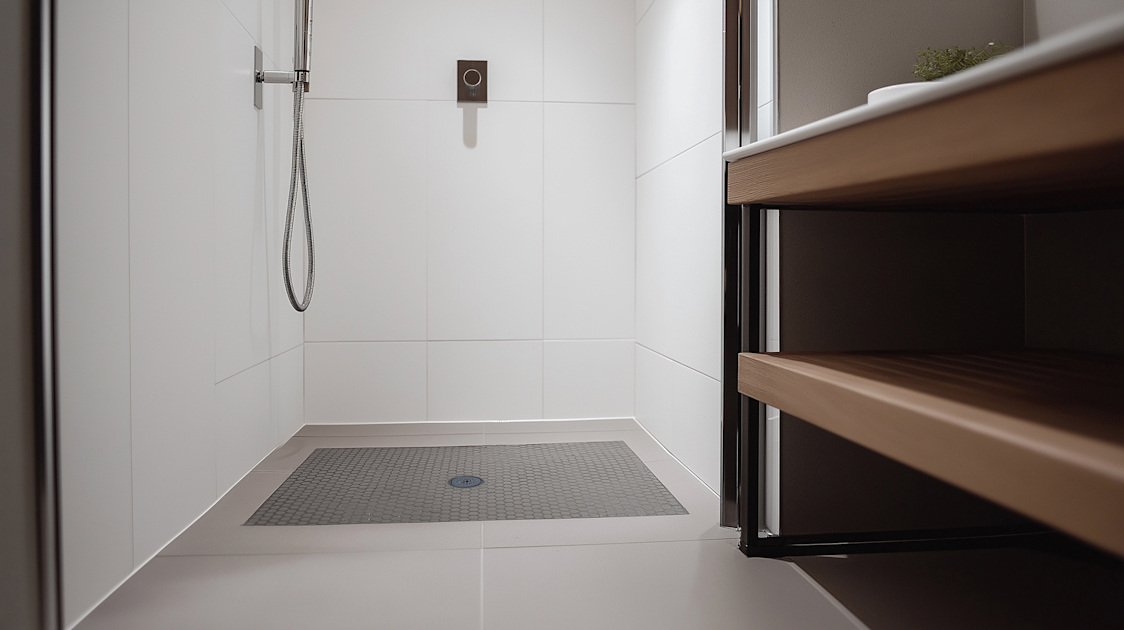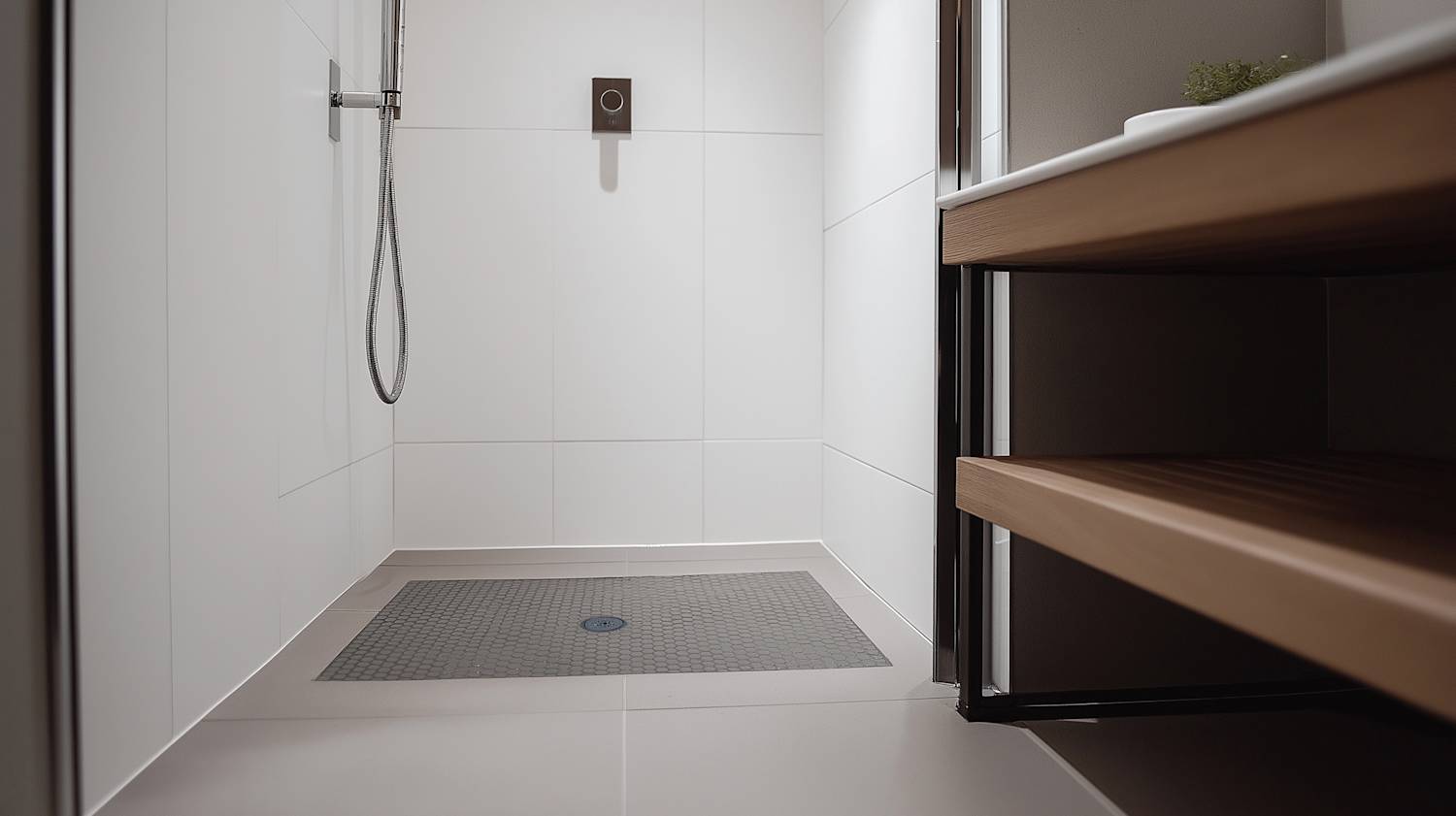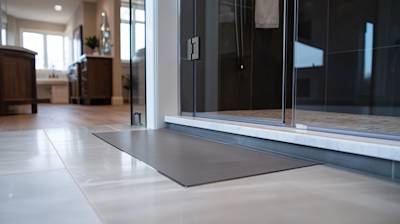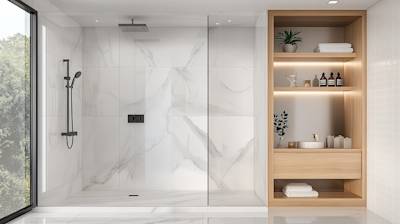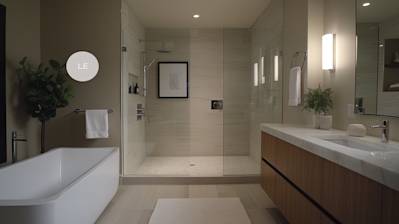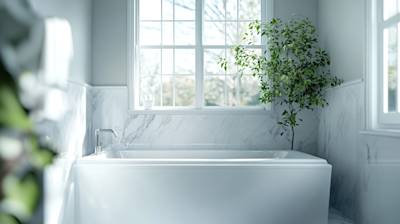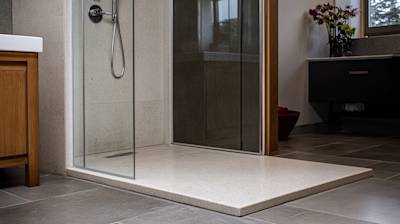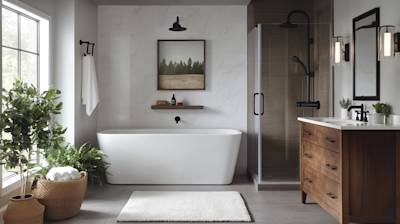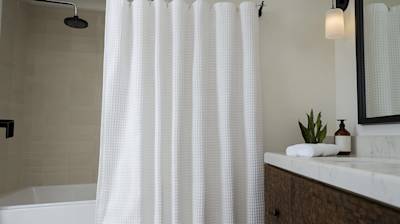Understanding the Proposition
With homeowners around the world continuously seeking to enhance their bathroom aesthetics, shower floors have been gaining significant attention. Often overlooked, the right shower floor significantly upscales the design of a bathroom, contributing to a peaceful, elegant, and de-stressing environment.
Here, we delve into the intricacies of shower floors, unraveling the technicalities, popular materials used, and the key factors to consider while choosing one. Showing how the right kind of flooring can change the entire outlook of a bathroom, lend durability while maintaining an anti-slipping feature, this article is a comprehensive guide to shower floors.
Shower Floors: A Pivotal Element of Bathrooms
Once confined to only functionality, bathroom designs have evolved dramatically over the years. A major part of that can be attributed to the surge in trendy and stylish shower floors. They are paramount in defining a bathroom's looks, comfort, utility, and safety. With diverse options available for every budget, preference, and need, shower floors offer endless possibilities to innovatively present your bathroom.
Types of Shower Floors
There are various types of shower floors, each offering unique advantages and aesthetic appeal. Here are the most commonly used types:
- Tile Shower Floor: Coming in endless design and color options, tile floors leave a lot of room for creativity. They are water-resistant and easy to clean.
- Stone Shower Floor: Known for its opulence, stone floors lend a spa-like aura to a bathroom. They are durable and trendy, albeit a bit pricier than other options.
- Glass Shower Floor: Boldly modern and sleeker, glass floors render a vibrant and bright feel to a bathroom. They are skid-proof and stain-resistant.
- Concrete Shower Floor: Highly versatile and chic, concrete shower floors compliment minimalist, traditional, and eclectic styles alike. They are cost-efficient and offer excellent longevity.
- Pebble Shower Floor: Offering an earthy, zen feeling, pebble floors instantly elevate a bathroom's vibe. Providing a therapeutic foot massage, they offer wellness perks.
Material Matters: The Role of Material in Shower Floors
Shower floors' material dramatically shapes the overall design and functionality of a bathroom. Here are popular materials employed and their distinct characteristics:
- Porcelain and Ceramic Tiles: Offering outstanding durability, moisture resistance, and low maintenance, these tiles come in a broad range of colors, sizes, shapes, and designs.
- Natural Stone Tiles: Equipped with intrinsic style, stones like slate, marble, granite, and limestone instill a spa-like, luxurious feel. They require sealing and more maintenance.
- Glass Tiles: Lively and appealing, glass tiles create a bright, light-refracting surface. They are non-porous and impervious to mold, mildew, and stains.
- Cement Tiles: Pioneering the industrial-chic trend, cement tiles offer unmatched longevity. Their surfaces can be designed with painted patterns for an artistic appeal.
Factors To Consider When Choosing Shower Floors
Choosing the correct shower floor is not just about aesthetics but also requires a consideration of multiple factors like:
- Cost: Different materials and designs vary significantly in cost. Setting a budget will help pinpoint what options are available to you.
- Installation Complexity: It's crucial to consider the intricacy of the shower floor's installation. Some, like tile and glass, require professional installation.
- Durability: Shower floors endure a lot and should hence be chosen on the grounds of durability.
- Maintenance: Some materials require more maintenance than others to keep their appeal intact.
- Waterproofing: Always prioritize materials that offer reliable water resistance.
- Slip Resistance: The shower floor should provide grip to prevent slips and falls.
Frequently Asked Questions about Shower Floors
What type of material is best for shower floors?
Shower floor material is usually chosen for its durability, slip resistance, and aesthetics. Some common materials include tiles (ceramic, porcelain, or glass), natural stone (slate, marble, or granite), and acrylic. Each has its strengths and weaknesses, and your choice may depend on cost, overall bathroom design, and personal preferences.
Is there a difference between shower floor tiles and regular tiles?
Yes, there is a difference between shower floor tiles and regular tiles. Shower floor tiles are typically smaller for better grip and slippage prevention. Also, they should hold up well against constant exposure to moisture and easy to clean.
How do I clean shower floors properly?
Cleaning shower floors largely depends on the material used. For most shower floor materials, regular cleaning with warm water and mild, non-abrasive cleaners is recommended. Some materials, like natural stone, may require special cleaning products. Always rinse thoroughly and dry the shower floor after cleaning to prevent water spots, soap scum, and mineral deposits.
How often should I replace shower floors?
There is no specific rule for when to replace shower floors. It mainly depends on the shower floor material's durability and the level of maintenance it receives. However, a well-maintained shower floor can last many years before it needs replacement.
What is a tiled shower base?
A tiled shower base, also known as a shower pan or shower tray, supports the shower floor. It's most often made from a sturdy material like concrete or acrylic, sloping towards the drain to guide water out.
Can I install a new shower floor over an existing one?
Yes, in some cases it is possible to install a new shower floor over an existing one. However, it's recommended to consult with a professional to ensure the old shower floor doesn't contain mold or isn't damaged. The new shower floor will also need to fit perfectly over the old one.
What should I consider when picking my shower floor color and design?
When picking your shower floor color and design, consider the overall aesthetic of your bathroom. Shower floors can either complement or contrast with the rest of the bathroom. Also, remember that darker colors can show water spots and soap scum more clearly, and elaborate designs may require more intense maintenance.
What are non-slip shower floors?
Non-slip shower floors are designed with texture or a specific material to increase traction when the floor is wet, reducing the risk of slips and falls. Such floors are particularly important for households with elders or kids.
Pros of Shower Floors
Comfort and Safety
Anti-Slip Surface
Most shower floors are designed with an anti-slip finish which helps prevent accidents, especially those that can result from slipping on a wet and slippery floor. This makes a shower floor significantly safer for all users, including children and older adults.
Durability
Long-Lasting Material
Materials used for shower floors like tiles, stone, and acrylic are generally long-lasting. This means that with proper care and cleaning, your shower floor could remain in good condition for many years and not need replacement.
Hygiene
Easy to Clean
Shower floors are quite easy to clean as they often only require the use of mild detergent and water. Tile shower floors, for instance, can be easily wiped down to remove soap scum, mildew, and other bathroom debris.
Bacterial and Fungal Resistant
Most modern shower floors are designed to resist the growth of bacteria, fungi, and mold. This is achieved through the use of non-porous materials and coatings that hinder the growth of these organisms, ensuring the shower remains hygienic.
Variety
Design Flexibility
Shower floors come in many shapes, colors, sizes, and designs allowing for more personalization when designing a bathroom. This means you can find a shower floor that fits your aesthetic preferences, be they minimalistic, modern, or ornate.
Accessibility
Allows for Walk-in Showers
The design of shower floors with their low or even non-existent thresholds allows for easier access especially in the creation of walk-in showers. This is a significant plus for users with mobility issues.
Cons of Shower Floors
Installation
Difficult to Install
Installing a shower floor can be quite time-consuming and may require the expertise of a professional. This can raise the cost for homeowners who are renovating or building a new bathroom.
Maintenance
Grouting
While tiles on the shower floor can be quite durable, the grout lines between them can attract dirt and mold, making them difficult to clean. They may also require periodic resealing to maintain their functionality.
Comfort and Safety
Hard Surfaces
Shower floors are often made with hard materials like tile or stone which may be uncomfortable to stand on throughout your shower. They can also become quite cold to touch during the winter months.
Damage and Repair
Susceptibility to Damage
While shower floors are generally durable, they can be damaged by falling heavy objects, resulting in costly repairs. Furthermore, certain types of shower floors like tile can be susceptible to staining and discoloring over time.
Not Easily Replaceable
In case of damage, repairing or replacing shower floors is not easy and can be quite costly. It also typically involves a significant amount of work, causing your bathroom to be unavailable during the repair or replacement process.
Cost
Can Be Expensive
Depending on the material and design of shower floor you opt for, the cost can be quite high. Some options like natural stone or custom tile designs can significantly increase the cost of your bathroom renovation or build.
Water Issues
Water Seepage
If not properly installed and sealed, shower floors can cause water to leak into the areas beneath them. This can cause structural damage or mould growth in other parts of the home.
Summary
Shower floors play an important role in ensuring a safe and comfortable bathing experience. From a consumer perspective, they need to be slippy-resistant to avoid accidents, easy to clean for hygiene reasons, and also stylish to add aesthetic value to the bathroom's overall design. In this respect, the materials used can range from ceramic and stone tiles, to materials like acrylic and fiberglass that are known for their durability and easy maintenance.
Despite their utilitarian purpose, shower floors can contribute significantly to the overall aesthetic of your bathroom. The vast array of available styles, colors, and materials means you can tailor your shower floor to perfectly fit your personal taste and bathroom decor. Whether you prefer a glossy ceramic tile that gives a bright and clean feel, or a natural stone that offers an earthy touch, shower floors can transform your bathroom space into a luxurious spa-like retreat.
But, what’s under the surface of shower floors is just as important as what’s on top. Proper installation and waterproofing techniques are crucial to avoid serious issues down the line such as leaks or mold growth. As you can see, shower floors, while often overlooked, are in fact a vital part of not only a functioning bathroom but also the whole home ambiance. So, whether you’re thinking about a bathroom upgrade or building a new one, make sure to think carefully about your shower floor.
About GVD Renovations & Remodeling
GVD Renovations & Remodeling is a proudly local company operating out of Roseville, CA. Specializing in home and commercial renovations and remodels, we are known for our impeccable craftsmanship and commitment to quality. We've got a solid reputation throughout the Roseville and broader Sacramento area for our work on windows, siding, kitchen, and bathroom remodeling. Our dedicated team of specialists is here to bring your dream home to reality. From design consultation to construction, GVD Renovations & Remodeling handles it all, making us your one-stop-shop for all your renovation needs.
Tags: bathroom, tiles, renovation,

